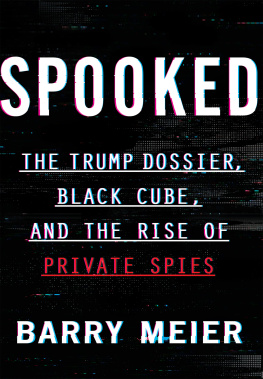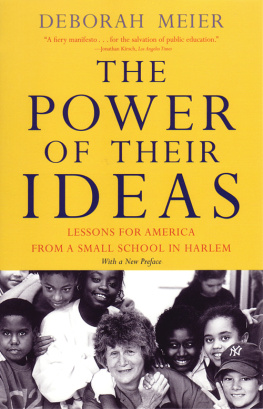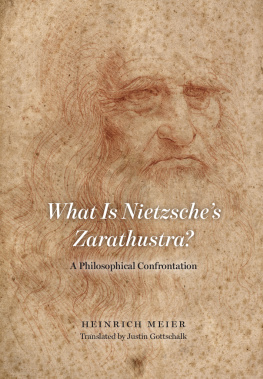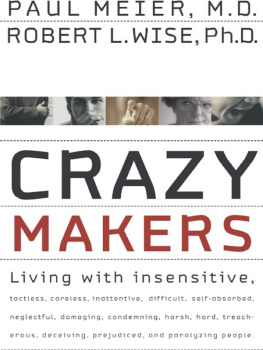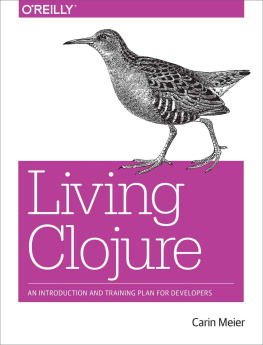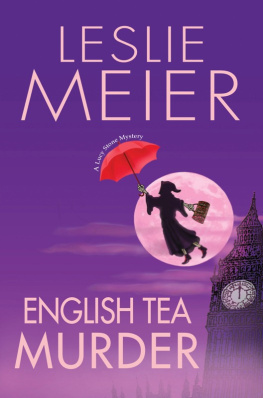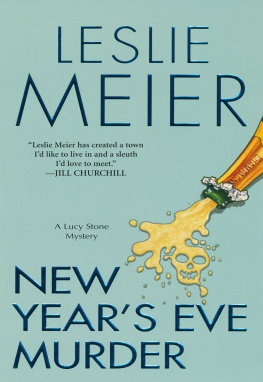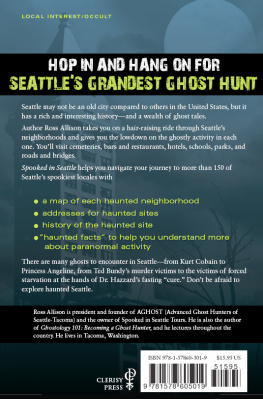Barry Meier - Spooked
Here you can read online Barry Meier - Spooked full text of the book (entire story) in english for free. Download pdf and epub, get meaning, cover and reviews about this ebook. year: 2021, publisher: Harper, genre: Detective and thriller. Description of the work, (preface) as well as reviews are available. Best literature library LitArk.com created for fans of good reading and offers a wide selection of genres:
Romance novel
Science fiction
Adventure
Detective
Science
History
Home and family
Prose
Art
Politics
Computer
Non-fiction
Religion
Business
Children
Humor
Choose a favorite category and find really read worthwhile books. Enjoy immersion in the world of imagination, feel the emotions of the characters or learn something new for yourself, make an fascinating discovery.
- Book:Spooked
- Author:
- Publisher:Harper
- Genre:
- Year:2021
- Rating:4 / 5
- Favourites:Add to favourites
- Your mark:
- 80
- 1
- 2
- 3
- 4
- 5
Spooked: summary, description and annotation
We offer to read an annotation, description, summary or preface (depends on what the author of the book "Spooked" wrote himself). If you haven't found the necessary information about the book — write in the comments, we will try to find it.
Spooked — read online for free the complete book (whole text) full work
Below is the text of the book, divided by pages. System saving the place of the last page read, allows you to conveniently read the book "Spooked" online for free, without having to search again every time where you left off. Put a bookmark, and you can go to the page where you finished reading at any time.
Font size:
Interval:
Bookmark:
As always, for Ellen and Lily
There was a police car behind us so it seemed like the right time to ask Ian what we should do if they pulled us over. Its good to get your story straight, he said.
So whats your story going to be? I asked him.
Im a driver, he replied.
That was true. He was sitting behind the wheel. But I had expected, given that he was a professional private detective, that his story would have covered me. What should mine be? I said.
Well, you could be honest, he suggested.
Thankfully, we werent stopped, but if we had been this is what I would have said: We were in Farnham stalking a resident, Christopher Steele, who once worked as a spy for MI6, Britains equivalent of the CIA. We wanted to stake out his house but were having trouble finding it because the name of his street that we had found on a property database didnt match any names that came up in Google Maps. As a result, we had been driving around narrow country lanes in circles for an hour.
I wanted to meet Steele because of his role in the infamous dossier about Donald Trump and Russia. During the 2016 presidential campaign, Fusion GPS, an investigative firm run by a former reporter for The Wall Street Journal, hired Steele on behalf of the Democratic Party to dig up information linking Trump to the Russians. Over a five-month period, Steele, who had spent four years in Moscow as an MI6 operative, wrote a series of memos that he sent to the ex-journalist, Glenn Simpson. Rumors about the memos had circulated for months within media and political circles before and just after the 2016 election. But the reports only publicly emerged in January 2017, two months after Trumps surprising victory, when BuzzFeed, an online news organization, posted them. Then all hell broke loose.
The memos, collectively known as the Trump dossier or the Steele dossier, went on to be cited in tens of thousands of articles, television programs, tweets, podcasts, and blog postings. Some of Steeles reports claimed that members of Trumps campaign had colluded with the Kremlin and one salacious memo suggested that the Russians had kompromat, or comprising material, on the Republican candidate. It was a videotape, according to Steeles sources, showing prostitutes that Trump had hired peeing on a bed at the Ritz-Carlton hotel in Moscow once used by President Barack Obama.
Trumps foes embraced the Steele dossier as proof that the Russians had helped him steal the 2016 election from Hillary Clinton. The new president and his allies went on the attack, calling it fake news. Simpson and Steele became celebrities.
In the fall of 2019, Simpson and his partner at Fusion GPS, Peter Fritsch, who was also a former Wall Street Journal reporter, published a book titled Crime in Progress, which they described as telling the inside story of the dossier. Christopher Steele, who co-owned an investigative firm in London called Orbis Business Intelligence, was enjoying the limelight, too. A Hollywood production company owned by the actor George Clooney had bought the rights to his story, and in 2019, he attended a celebrity-filled event at a trendy London restaurant. The party was held to honor a new editor of Vanity Fair magazine, and guests included Colin Firth, the well-known actor, and Monica Lewinsky, the former White House intern with whom Bill Clinton had an affair and who now wrote for Vanity Fair.
The magazine had earlier published a profile of Steele that depicted him as a kind of James Bond for the Trump era. It described him as an ex-spy who knew where all the bodies were buried in Russia and who, as the wags liked to joke, had even buried some of them. Steele was reveling in the moment. As the party was breaking up, another guest asked him for his business card. Steele thought he was being asked for his autograph so he picked up his place card from the table and, pulling out a pen, signed it with a flourish.
I was interested in Glenn Simpson and Christopher Steele for a different reason. The dossier and the massive political and cultural fallout it spawned epitomized the oversized impact that private spies were suddenly having on politics, business, and our personal lives. Around the same time that the Steele dossier was disclosed, it was revealed that Hollywood producer Harvey Weinstein had hired four different corporate investigations firms to dig up dirt on women accusing him of sexual assault. One of those companies, Black Cube, which was based in Israel, dispatched a female operative who posed as an activist for womens rights in order to befriend one of Weinsteins accusers and get information that the producers lawyers could use against her.
Everywhere one looked, operatives-for-hire seemed to be running amok. Reporters covering the trial of a lawsuit against a chemical company over the health dangers of its weed killer were approached by a woman who claimed to be a journalist but turned out to be working for a crisis-management firm representing the company. About the same time, a lawyer who long had been locked in a dispute with three businessmen from Eastern Europe discovered that private spies had planted a tiny, motion-sensitive video camera in a tree outside his home that recorded the license plate of every car entering the property. Elsewhere, private operatives working on behalf of Credit Suisse, a big bank, chased one of its former executives through the streets of Zurich, Switzerland. The incident began when the ex-employee discovered the spies were shadowing him and used his cellphone to take a picture of one of them. The private eye demanded that the man turn over his phone and, when he refused, the spy tried to rip it away. The chase ended with the arrest of an investigator.
Private investigators once were content to lurk in the shadows. Now, politicians were hiring them to dig up dirt on opponents, companies were employing them to torpedo investigations into their activities by authorities or journalists, and dictators were using them as freelance intelligence agents. A new generation of cheap, off-the-shelf technology was also making it easier for hired operatives to monitor cellphones, hack emails, and manipulate social media. Private spying was no longer a small business. It had become a hidden, billion-dollar industry. In the process, private spies had become more emboldened than ever beforejust as their power to influence events had become more pervasive.
There is little question that private investigators take on legitimate assignments. They track down missing people, locate witnesses to testify in court cases, and conduct background investigations for companies into prospective executives or potential business partners. Still, everyone in the industry knows its secretthat the big money is made not by exposing the truth but by papering it over or concealing it.
Spies-for-hire are part of a wider web of enablerslawyers, public relations executives, crisis management consultantswho serve the powerful and wealthy. But what makes private operatives unique is that they are the unseen part of that web, taking on the kinds of jobs that other people dont know how to do or dont want to get caught doing.
Private operatives invariably say they never engage in hacking. But instead of hacking themselves, some operatives farm out hacking jobs to subcontractors in India, Eastern Europe, or elsewhere. Private investigators will also say they do not misrepresent themselves in order to dupe the unsuspecting into revealing information. And some investigators dont. Still, much of the private spying world would become extinct if its inhabitants werent willing to engage in activities that are illegal, unethical, or just plain unsavory.
Font size:
Interval:
Bookmark:
Similar books «Spooked»
Look at similar books to Spooked. We have selected literature similar in name and meaning in the hope of providing readers with more options to find new, interesting, not yet read works.
Discussion, reviews of the book Spooked and just readers' own opinions. Leave your comments, write what you think about the work, its meaning or the main characters. Specify what exactly you liked and what you didn't like, and why you think so.

